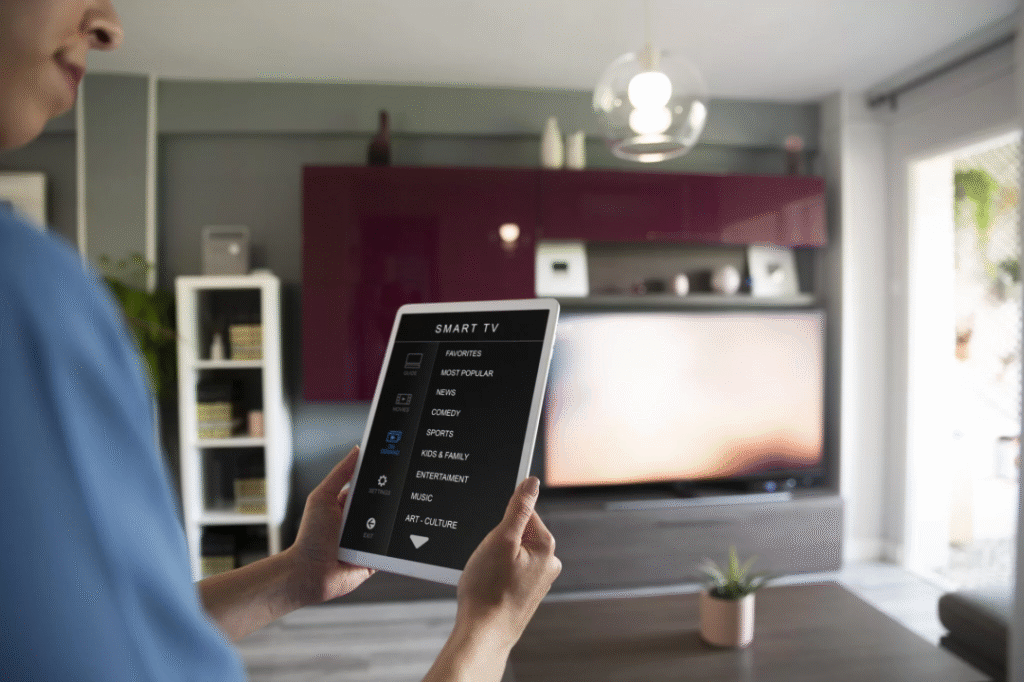
Integrating Smart Appliances: Transforming Modern Homes
In today’s rapidly evolving technological landscape, the concept of integrating smart appliances has gained significant traction. The ability to seamlessly incorporate these advanced gadgets into our daily lives is no longer a mere luxury but a necessity. As we delve deeper into the realm of smart home technology, it becomes evident that these appliances are revolutionizing the way we interact with our living spaces.
The integration of smart appliances is not just about convenience; it’s about creating a cohesive ecosystem that enhances efficiency, security, and sustainability. From smart refrigerators that can monitor their contents to thermostats that adjust temperatures based on your preferences, the possibilities are truly endless.

Understanding Smart Appliances
Before diving into the process of integrating smart appliances, it’s crucial to understand what they are. Smart appliances are electronic devices that can connect to your home network and be controlled remotely via a smartphone or a computer. They often come with advanced features, such as voice control, energy monitoring, and automation, which make them stand out from traditional appliances.
The Benefits of Smart Appliances
One of the primary benefits of smart appliances is their ability to enhance energy efficiency. By providing real-time data on energy consumption, they enable homeowners to make informed decisions about their energy use. This not only reduces utility bills but also contributes to environmental sustainability. Additionally, smart appliances offer unparalleled convenience and control, allowing users to manage their homes even when they’re miles away.
How to Begin Integrating Smart Appliances
Starting the journey of integrating smart appliances into your home might seem daunting, but with the right approach, it can be a smooth process. Begin by assessing your needs and identifying which appliances could benefit from an upgrade. Common starting points include smart thermostats, lighting systems, and security cameras.
Choosing the Right Ecosystem
There are numerous smart home ecosystems available, such as Google Home, Amazon Alexa, and Apple HomeKit. Each of these platforms offers unique features and compatibility options, so it’s essential to choose one that aligns with your requirements. For more insights on smart home integration, you can explore integration with Alexa.
Overcoming Common Challenges
While the benefits of smart appliances are clear, there are common challenges that homeowners face during the integration process. These include compatibility issues, network connectivity problems, and security concerns. To mitigate these challenges, it’s advisable to conduct thorough research and consult with professionals if necessary.
Ensuring Security and Privacy
Security is a paramount concern when it comes to smart appliances. As these devices are connected to the internet, they can become targets for cyber-attacks. To safeguard your home network, ensure that all devices have strong, unique passwords and regularly update their firmware. For more on smart home security, you might find smart home security integration helpful.
The Future of Smart Appliances
The future of smart appliances looks promising, with advancements in artificial intelligence and machine learning paving the way for more intuitive and personalized home experiences. These technologies will enable appliances to learn from user behavior and adapt accordingly, further enhancing the convenience and efficiency of smart homes.
Innovative Smart Appliances on the Horizon
As technology continues to evolve, we can expect to see even more innovative smart appliances entering the market. From refrigerators that can suggest recipes based on available ingredients to washing machines that can schedule cycles based on energy demand, the possibilities are endless.
Conclusion
In conclusion, integrating smart appliances into modern homes is a transformative process that offers numerous benefits. By embracing these technologies, homeowners can enjoy enhanced convenience, efficiency, and security. As the smart home industry continues to evolve, staying informed and adaptable will ensure that you make the most of these advancements.

FAQs on Integrating Smart Appliances
1. What are the basic requirements for integrating smart appliances?
To integrate smart appliances, you’ll need a stable internet connection, a compatible smartphone or device, and a smart home ecosystem like Google Home or Amazon Alexa.
2. Are smart appliances energy-efficient?
Yes, most smart appliances are designed to be energy-efficient, offering features like energy monitoring and automation to help reduce energy consumption.
3. Can smart appliances work with existing home appliances?
Many smart appliances are designed to integrate with existing home systems, but compatibility depends on the specific models and the smart home platform you’re using.
For further reading on the technical aspects of smart homes, you can visit ScienceDirect.
This article contains affiliate links. We may earn a commission at no extra cost to you.